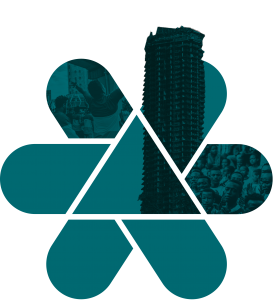VSO Ethiopia played a key role in providing leadership and strategic guidance, and mobilising and amplifying collaborative actions for an enabling environment in Ethiopia.
Download case study
Voluntary Service Overseas (VSO) is an international development organisation with a vision for a fair world for everyone, and a mission to create lasting change through volunteering. VSO has been present in Ethiopia since 1995, contributing to the development of healthy communities and strengthening inclusive education systems.
The introduction of repressive legislation in Ethiopia in 2009 led to a decade of severe crackdowns on human rights organisations, and a severely repressed environment for civil society. Foreign funding was curbed, the legislation violated international standards related to the freedom of association, and VSO was struggling to deliver its programmes in a context of severely closed civic space. VSO saw the need for collective action, and therefore took steps with partners to help found the Ethiopian Charities and Societies Forum (ECSF) in 2013, the main coalition advocating for civil society organisation policy reforms in the country. A new government in 2018 opened up the opportunity to build a new relationship between civil society and government, and as a result of successful advocacy, reform was achieved in 2019. This case study looks at VSO’s role in providing leadership and strategic guidance, and mobilising and amplifying collaborative action for an enabling environment.
Problem-solving can overtake programmatic focus
Investing time and energy in Forum-related activities created an additional burden for VSO staff, and this was challenging at an organisational level. It meant that the country office could not focus on the growth of its programmes, as instead it was focused on problem-solving. However, given that the office had received a warning letter from the government concerning its programmes, this strategic engagement was a priority to ensurethe organisation’s ability to remain in Ethiopia.
Risk of hosting
Hosting the Forum was not straightforward. The Civil Society Agency believed that the Forum was working against the government and its policies, and so there were risks for VSO associated with this hosting function. VSO had to try and ensure that the Agency saw the work in a positive light, in order to mitigate the additional risk, which made for a difficult balancing act.
Overcoming misconceptions and mistrust
VSO and the Forum’s leadership committee members had to work hard to develop trust amongst some civil society groups. As the Forum had to work closely with government officials in order to ease the tension and secure a safe and constructive working relationship, suspicions were raised that the Forum had been set up by the government, and was therefore not to be trusted. Consultations were undertaken to clarify the purpose of the Forum, as well as to collect input, to create broad, cross-sector buy-in. Trust gradually developed thanks to consistent and persistent communications and action from the Forum’s leadership.
Building a shared vision
It was vital to engage with a broader agenda, and not just focus on individual organisational problems. VSO’s long-term goal was the existence of a vibrant civil society, able to advocate for the rights and needs of others. Engaging with that broader vision and agenda meant that VSO and the Forum were able to win the support of donors and other CSOs. It opened up the space for discussion across sectors, informing the more strategic advocacy that could address the issues of all civil society organisations. By working to ensure that everyone was behind a shared vision and agenda, contributing to and supporting the Forum, they were able to eventually bring about change.
Committing to building bridges
The government at the time was strong, and there was no flexibility on policies. A strong commitment was needed with a long-term view taken on how to build trust and bridges. For example, the Forum organised consultative workshops and invited representatives from the regulatory body, so that civil society could directly share concerns with those from the Agency. This approach, over time, positively affected the Agency’s perception of CSOs, and meant that space opened up to move from the resolution of more immediate issues to the broader advocacy points for an enabling environment and reform. It would have been too simplistic and ultimately counterproductive to classify the government as ‘the enemy’, therefore constructive ways of working had to be found.
Multi-level advocacy is key
As an international organisation, VSO was able to engage in advocacy with donor partners and call for international advocacy on the issue, encouraging diplomatic approaches from different stakeholders to try and open up space. VSO was in a position to push the agenda from these multiple angles, and this was important in providing a sense of international solidarity and cover.
-
As a result of sustained pressure and successful advocacy, the CSO legislation was amended. The Charities and Societies Proclamation was introduced in January 2019 as part of new civic reforms, and the Law of Ethiopian Civil Society Organisations passed in February 2019. The new law has lifted restrictions on foreign funding, has allowed for the re-entry of international organisations to the country, and has updated the regulator to be a more robust ‘critical friend’ to civil society.
-
These changes have resulted in greater accountability and transparency, meaning increased operational freedom for VSO and other civil society groups, and an increased legitimacy of CSOs and their activities. Specifically for VSO, compliance concerns have been eased, and interventions on issues such as gender equality and social inclusion and accountability can now legally be integrated into programming.
-
The Forum has not since dissolved, and is now taking part in the transition period after the ratification of the new legislation. Forum members are developing a code of conduct for CSOs to support perceptions of legitimacy, and establishing a council to represent organisations and serve as a communications conduit between civil society and the regulatory body and different government sectors.